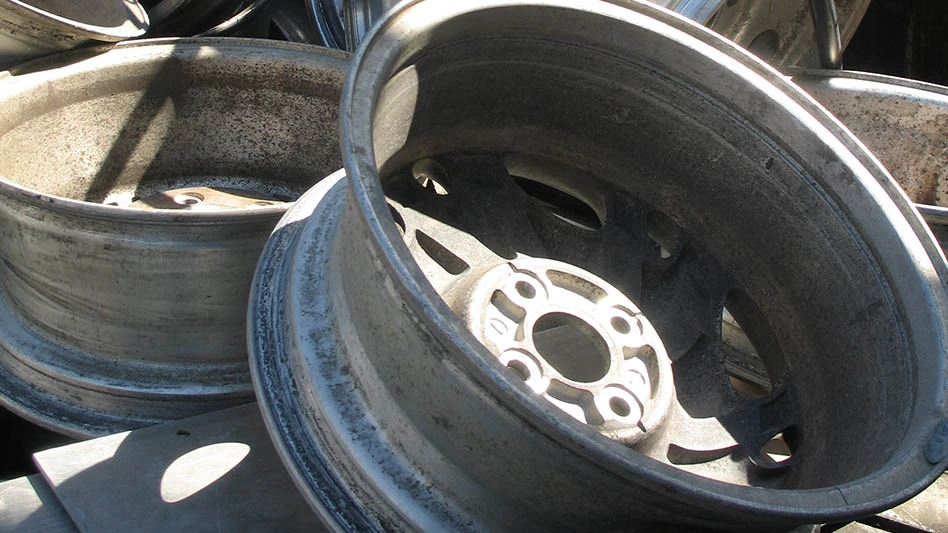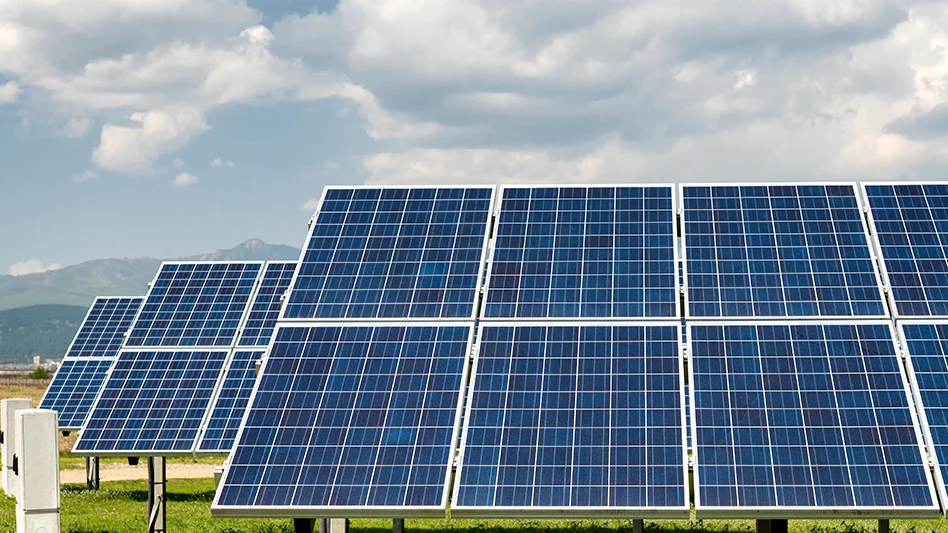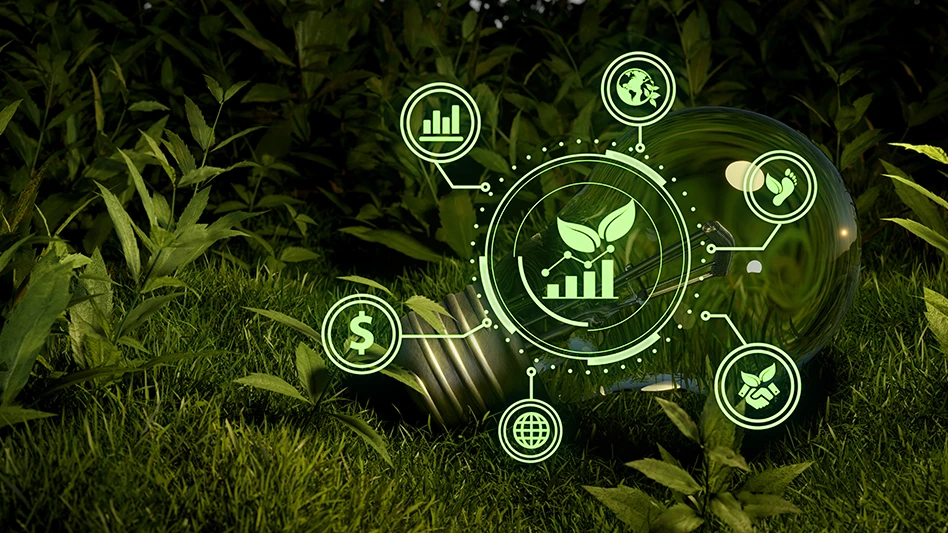
Legislation & Regulations
Recycling-related bills greenlit in California
As September ended, California Gov. Gavin Newsom signed a number recycling-related bills into law and vetoed another that would have created an extended producer responsibility (EPR) program for electric vehicle (EV) batteries.
Newsom signed Senate Bill 1053, which bans the distribution of single-use plastic bags in California’s grocery store checkout lines starting in 2026.
S.B. 1053 was authored by state Sen. Catherine Blakespear to “close a loophole” in existing legislation, enacted 10 years ago, that allows stores to sell customers thicker plastic carryout bags that were considered reusable and met certain recyclability standards. However, Blakespear notes that bags covered by the decade-old legislation rarely are reused or recycled and end up in landfills or the environment.
Under S.B. 1053, grocery stores can offer recycled paper bags at checkout, or consumers can use their own bags for their purchases. Blakespear notes the legislation does not restrict the sale of any type of bag, rather it provides that only paper bags can be available at the point of sale.
The legislation initially was supported by state Assemblymember Rebecca Bauer-Kahan, who authored an identical bill, A.B. 2236, that was pushed through the California assembly to help build momentum for the policy.
Both bills were supported by more than 200 organizations, including Californians Against Waste, the California Grocers Association, Ocean Conservancy and Oceana.
Additionally, Newsom signed the Responsible Textile Recovery Act of 2024, or S.B. 707. The law establishes an EPR program for the collection and recycling of apparel or other textile articles deemed unsuitable for reuse by consumers in their current conditions.
The law, first authored by Sen. Josh Newman in 2023, is considered the first EPR textile recycling program in the U.S. and requires participants in the textile value chain to take responsibility for the entire life cycle of their products, including repair, recycling and reuse of garments and fibers.
Once implemented, Newman says S.B. 707 not only will reduce the number of textiles sent to landfills but also support the development of upcycling and recycling across the state and help address the environmental impacts of “fast fashion” and the “throwaway culture it has abetted.”
The legislation received support from nonprofit organizations such as the California Product Stewardship Council (CPSC), retailers Ikea and Goodwill and Phoenix-based hauler Republic Services Inc., as well as from local governments, agencies and sanitation districts.
The law requires CalRecycle to adopt regulations governing the program and, beginning Jan. 1, 2032, to reassess the adopted regulations to include adjusting the minimum required collection sites, establishing a minimum recycling efficiency rate for covered products collected and recycled by program operators and establishing other program criteria.
The law also establishes the Textile Stewardship Recovery Fund in the state treasury to receive all the money collected through program operators and would make funds available to CalRecycle for program purposes. CalRecycle will be able to impose fines that do not exceed $10,000 per day for violations of the program’s requirements or that do not exceed $50,000 per day in cases of intentional, knowing or reckless violations.
Newsom also signed S.B. 1143, expanding the range of products covered under the state’s paint recycling program, managed by PaintCare.
PaintCare is a nonprofit organization that has been active in California since 2012, representing paint companies and organizing stewardship programs for leftover architectural coatings in states with stewardship laws.
With his signing of S.B. 1143, the program’s list of covered products expands to include additional nonindustrial coatings and coating-related products, as well as aerosol coatings, by 2028.
An EPR bill that would have required all EV batteries in the state to be reused, repaired, repurposed or remanufactured and eventually recycled at end of life was sent back to the state’s Senate without Newsom’s signature.
Under S.B. 615, introduced by Sens. Ben Allen and Dave Min, the Department of Toxic Substances Control (DTSC) would be responsible for adopting regulations to implement and enforce the bill’s requirements and for establishing a method for EV battery suppliers, secondary users and handlers and qualified facilities to report EV battery transactions.
The bill also would impose fines of up to $50,000 per day for battery suppliers that don’t comply with its rules, with fines of up to $100,000 per day if the violation is deemed intentional. Had S.B. 615 passed, the DTSC would have needed to adopt the bill’s regulations by July 1, 2028.

Metals
North American aluminum demand increased in the first half of 2024
According to preliminary estimates from the Aluminum Association, based in Arlington, Virginia, aluminum demand in North America, which comprises the U.S. and Canada, increased 5.2 percent year over year through the first half of 2024. This follows a year of softer demand in 2023 primarily driven by industry destocking and an approximate 25 percent decline in imports.
The demand data were part of the “Aluminum Situation” report produced monthly by the Aluminum Association.
“Customers and end consumers have made it clear that they want sustainable, recyclable materials like aluminum,” Aluminum Association CEO Charles Johnson says. “Our members are investing in production and jobs in the United States to help meet this demand both now and in the future.”
The report found that aluminum demand in the U.S. and Canada (shipments by domestic producers plus imports) totaled an estimated 14,056 million pounds through the first half of 2024, an increase of 5.2 percent compared with the first half of 2023, when demand was 13,365 million pounds.
Semifabricated, or mill, product demand remained largely steady year over year through the second quarter, according to the report, while sheet and plate demand rose 7.5 percent and foil, extruded products and electrical markets declined.
Aluminum exports (excluding scrap) increased by 25.6 percent year to date and imported aluminum and aluminum products into North America decreased 14 percent over that same period.
The association’s Index of Net New Orders of Aluminum Mill Products (baseline index of 100) increased 1.1 percent through June, coming in at 105.97.
In the last decade, Aluminum Association member companies have announced more than $10 billion in domestic manufacturing operations, including new, U.S.-based greenfield facilities, for the first time since the 1980s. Aluminum production in the U.S. is growing thanks to increased demand for sustainable packaging, safe and efficient vehicles, greener buildings and vital infrastructure, the association says.
Scrap generation appears to have slowed as demand has grown, however, with one secondary producer saying the market is softer than it was a year ago.
“It’s not as robust,” Michael Boyle, president of Owl’s Head Alloys, headquartered in Bowling Green, Kentucky, says of generation in September. “On the scrap supply side, everyone’s chasing the same pounds right now."
“We just didn’t see that big [scrap] flow pick up like we usually do on a seasonal basis,” he says of May. “People are fighting over the same metal units at this point, and something has to change.”
In his commentary in the “Bureau of International Recycling World Mirror on Non-Ferrous Metals” for October, Rick Dobkin of Shapiro Metals, St. Louis, writes: “As for recycling, we are starting to see some of the greenfield aluminum expansions entering the marketplace and causing sporadic shortages of certain items. Rolling mill scrap was very tight recently but now seems to be a little better balanced. Extrusion scrap is hit or miss. Whereas that part of the business had been expected to return to growth in the second half of this year, people are now saying any improvements are likely to come in mid-2025. On the secondary aluminum side, export markets have been faltering of late amid reduced pricing and demand. Demand seems reasonable and stable domestically.
“We are entering the period of contract negotiations for 2025, with the mills concerned about availability of scrap given increased demand from the new operators,” Dobkin adds. “There have been some recent calls to prohibit the export of scrap metals, but these have not gained much traction as yet.”

Plastics, Legislation & Regulations
Plastics producers fined in Washington
The Washington Department of Ecology has fined 35 plastic producers a combined total of $416,554 for violating the state of Washington’s recycled-content law. The department says the companies did not include enough recycled material in plastic trash bags and beverage containers covered under the law.
These are the first penalties issued under the 2021 state law S.B. 5022 aimed at reducing waste and pollution from plastics.
The penalties were based on the amount of plastic each company sold in Washington and how far from the recycled-content requirements they were. Fines ranged from $39 to $67,196.
Under the 2021 law, plastic packaging producers are required to report the weight of new and recycled plastic sold in Washington. Producers that fell short of the recycled-content requirements were issued penalties.
Two producers issued penalties, Admiral Beverage Corp. and Lassonde Pappas, requested and received corrective action plans. Half their fines were suspended in exchange for a plan to achieve future compliance. All producers were offered this option, and five remain eligible, including CAB Enterprises Inc., Heaven Hill Distilleries Inc., Jim Beam Brands, Langer Juice Co. Inc. and Premier Nutrition Co. LLC.
The Washington Department of Ecology is responsible for implementing the law. It began registering producers and accepting annual fee payments in 2022. Minimum recycled-content requirements took effect for several types of products covered under the law in January 2023. Companies that produce plastic trash bags were required to include a minimum of 10 percent-recycled content, and beverage container producers had to include at least 15 percent-recycled content.
The Clorox Co. faces the largest penalty. According to its 2024 integrated annual report, 10 percent of the plastic used in its packaging contained postconsumer recycled (PCR) content as of Dec. 31, 2023. This differs from 2018, when the company reported an 11 percent baseline.
Of the 128 companies required to meet recycled-content requirements, 93 met or exceeded those benchmarks, the Washington Department of Ecology reports. The department registered 310 producers, but 182 are exempt from the requirements because of their low revenues or the low weight of plastic sold into the state.
More companies will be required to meet these standards in the coming years as the law expands to cover a wider range of products and as requirements for recycled content increase. By 2036, Washington’s law will cover packaging for various types of common consumer products, requiring a minimum of 50 percent-recycled content for most of them.
The following companies were issued penalties:
- Admiral Beverage Corp., $4,630;
- Albertsons Cos., $41,954;
- Angelcare USA, $44;
- Arcadia Farms LLC, $1,229;
- Arizona Beverages USA, $6,391
- CAB Enterprises Inc. (Electrolit USA), $1,895;
- Chobani LLC, $39;
- Danone US LLC, $6,285;
- Del Monte Foods Inc., $243;
- good2grow LLC, $2,953;
- Heaven Hill Distilleries Inc., $15,525;
- Herbalife International of America Inc., $91;
- HP Hood LLC, $6,681;
- Jim Beam Brands Co./Suntory Global Spirits Inc., $4,220;
- Johanna Beverage, $63;
- Kraft Heinz Foods Co., $3,697;
- KSF Acquisition Corp., $24,582;
- Langer Juice Co. Inc., $11,530;
- Lassonde Pappas and Co. Inc., $5,646;
- Milo’s Tea Co. Inc., $5,644;
- Ocean Spray Cranberries Inc., $53,568;
- Premier Nutrition Co. LLC, $2,341;
- Richardson Bottling Co. (Mountain Mist), $1,658;
- Sazerac Co. Inc., $32,758;
- Soylent Nutrition Inc., $505;
- Talking Rain Beverage Co. Inc., $59,831;
- The Clorox Co., $67,196;
- The Kroger Co., $9,021;
- Topco Associates LLC, $2,098;
- Trader Joe’s, $2,381;
- Tree Top Inc., $20,333;
- Uline Inc., $14,991;
- Walgreen Co., $1,206; and
- Welch Foods Inc., $2,050.
“Most producers see the value in using recycled content in their products,” says Peter Lyon, solid waste program manager at the Washington Department of Ecology. “We need to continue working together to improve our recycling system and reduce the pollution and contamination that come from producing new plastic.”

Explore the November 2024 Issue
Check out more from this issue and find your next story to read.
Latest from Recycling Today
- Steer World offers PEX plastic recycling machine
- New recycling grant program launches in Massachusetts
- Tire Recycling Foundation names executive director
- Dock 7 named 2025 Exporter of the Year at New Jersey International Trade Awards
- Waste Connections reports ‘better than expected’ Q1 results
- Commentary: How EPR is transforming the packaging industry
- Acerinox names new North American Stainless CEO
- Greenwave closes 2024 books with red ink





